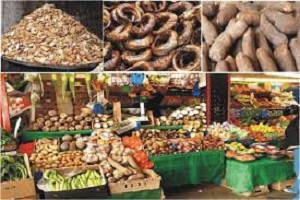Oluwagbeminiyi Abiola
The Nigerian naira has gained some value in the last few weeks but many Nigerians are confused as to why prices of goods and services have not reduced as expected.
We spoke to traders in markets across Nigeria to understand the reason behind this.
The traders explained that though the naira has gained value recently, the prices they pay to restock their goods are still very high. This is because when the dollar was previously very expensive against the naira, it made restocking costly.
Traders defend themselves
At Berger Market, Mrs. Adebayo who sells foodstuffs said, “When the dollar becomes more expensive, we have to pay much more money to buy new stock. If we do not increase the prices we sell, we will not have enough money to restock our goods.”
Mr. Chigozie, an electronics trader at Alaba Market, said suppliers have also not reduced the prices they charge the traders. “The suppliers are still charging us very high prices. Until they bring down their prices, we cannot reduce the prices we sell to customers.”
Some people are alleging that certain traders are increasing their prices more than they should, even with the changes in dollar rates.
Mrs. Adebayo admitted, “It is possible some traders are increasing prices too much, higher than the change in the exchange rates. If many traders are doing this, it can be a major reason why prices have not come down.”
The price of goods are increasing each day: Traders complaints
Traders are facing serious difficulties due to the high prices. One trader complained, “Last year’s prices were still a bit affordable but this year is too much – like last week the price of a crate of eggs increased three times!”
Another added, “Everyday prices are increasing, groundnut oil is now very expensive, is it the dollar affecting everything again?”
Many traders say they are just trying to survive. “We don’t sell to make profits anymore, we just sell to sustain our business,” said a trader. Another lamented, “Prices increase when we buy, so we too must increase for our goods, but people’s salaries are not increasing.”
The situation is making it very difficult for traders to attract customers. A clothing trader said, “The price of fabric last year was affordable (N1,500) but now it’s expensive (N2,500) and it’s difficult for people to buy from us. Some days we might not even sell one yard of cloth but we still have to go home and feed our families.”
Food items have become extremely costly, with a trader revealing, “A basket of tomatoes last year was N20,000, now it is between N50,000 to N80,000.”
Frustrated Customers, Helpless Traders
While some customers understand the situation the traders are facing, others continue to complain about the persistently high prices. Mr. Chigozie stated, “Some customers know the high prices are not our fault. But others keep complaining, and we keep telling them the high prices are beyond our control.”
So in simple terms, traders say prices remain high because when the dollar was previously very expensive, it made their restocking costs very high. Suppliers have also not reduced their prices yet. There are also claims that some traders are excessively increasing prices more than required.
While customers want to pay less when the naira is stronger, traders need to make enough profit to continue their businesses. Finding a balance between the concerns of customers and traders is important.
Calls for Urgent Intervention
The continuous price increases have left many traders frustrated and calling for urgent government intervention. “Someone needs to tell us what is going on because prices keep increasing daily, it’s no longer weekly or monthly,” an angry trader stated.
Another trader pleaded, “We are fed up and suffering, the government should do something quickly. Tell the president to act fast, we can’t continue like this.”








